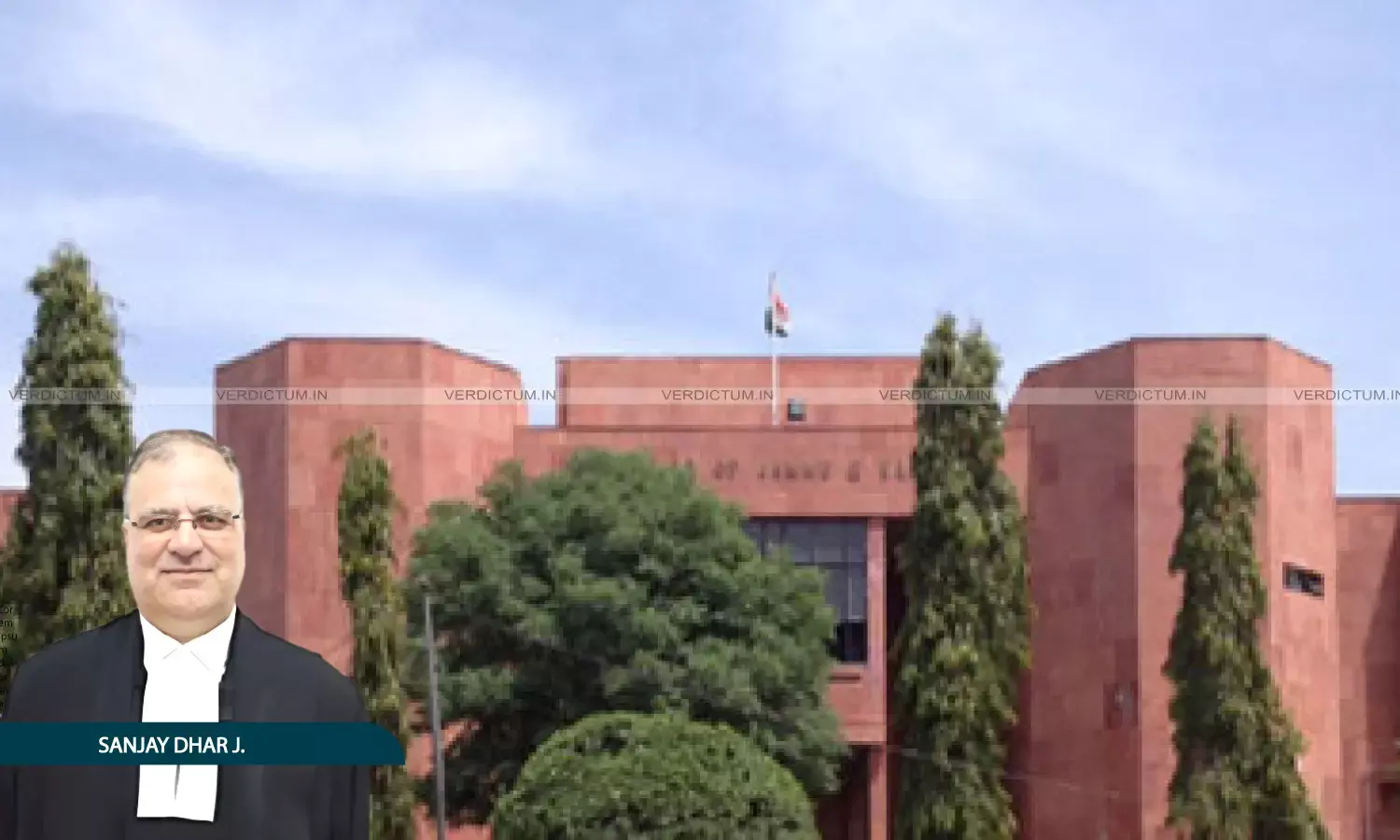Assault On a Woman Without Intent to Outrage Modesty Does Not Attract Offence U/S. 354 IPC: J&K & Ladakh High Court
The High Court held that dragging a woman during a family dispute, resulting in her headgear falling, does not constitute an offence under Section 354 IPC in the absence of any material indicating intention or knowledge to outrage modesty.

The Jammu & Kashmir and Ladakh High Court has ruled that allegations of assault or dragging a woman, in the absence of intention or knowledge to outrage her modesty, do not constitute an offence under Section 354 of the IPC.
The Court was hearing a petition seeking the quashing of an FIR lodged for offences under Sections 354 and 448 IPC. The FIR alleged that the complainant was beaten and dragged by her brother-in-law, his wife and son, resulting in her headgear falling, which was claimed to be an act outraging her modesty.
A Bench comprising Justice Sanjay Dhar, while deciding the matter, observed that “…an assault or use of criminal force to a woman simplicitor unaccompanied by a state of mind to outrage modesty of such woman cannot be termed as an offence under Section 354 of IPC.”
Advocate Naveed Gul represented the petitioner, while Ilyas Nazir Laway, Government Advocate, represented the respondents.
Background
As per the prosecution, the matter arose when the complainant alleged that the petitioners came to her house, assaulted her, dragged her out, and broke open a lock of another room. It was further alleged that during the scuffle, her head covering fell off, amounting to outraging her modesty. Based on an order of the Magistrate, an FIR came to be registered.
The petitioners denied the allegations and stated that the parties were co-owners of the property in question and that civil litigation over possession was already pending, with a status quo order passed by the Civil Court. They argued that the FIR was a counterblast to earlier complaints and was meant to pressure them in the civil dispute.
The Investigating Agency informed the Court that it had completed the investigation and filed a charge sheet. However, the complainant did not appear to contest the petition.
Court’s Observation
The J&K and Ladakh High Court extensively discussed the essential ingredients of Section 354 IPC, notably that criminal force must be accompanied by intention or knowledge of outraging modesty. Referring to Rupan Deol Bajaj vs. Kanwar Pal Singh Gill and Attorney General vs. Satish, the Court reiterated that modesty refers to womanly propriety of behaviour and that the test is whether the act is capable of shocking a woman’s sense of decency.
The Court explained that “modesty is the quality of a woman of being modest whereas in relation to a woman, it means decorous in manner and conduct”. Thus, the Court held, “any act which shocks the sense of decency of the woman would come within the purview of the offence of outraging the modesty of a woman”.
In the present case, the Court held that the incident described in the FIR suggested a physical altercation arising out of a family property dispute. The complainant was the sister-in-law of two petitioners and the aunt of the third. The Court found that dragging during a scuffle, which led to her headgear falling, in itself did not establish the requisite intent under Section 354 IPC.
The Court explained that “intent to outrage or the knowledge that by the offending act the accused would outrage modesty of the victim women is basic ingredient of offence under Section 354 of IPC.”
“Mere assault or use of criminal force on a woman, without there being any intention on the part of the accused to outrage the modesty of the victim, would not fall within the definition of the offence punishable under Section 354 of the IPC”, the Court emphasised.
The Court further observed that the Investigating Agency had failed to consider the civil dispute. The record showed that ownership of the house was jointly claimed, and a status quo order had been passed by the Civil Court. In this background, the Court held that entry into the property could not amount to criminal trespass under Section 448 IPC as possession was not conclusively with the complainant.
Further, relying on Md. Ibrahim v. State of Bihar, the Court observed that there is a “growing tendency” to convert civil disputes into criminal cases to pressurise the opposite party. The FIR was found to be a misuse of criminal process to settle a civil conflict.
Conclusion
Holding that the material collected during the investigation did not disclose the commission of any cognizable offence, the Court allowed the petition.
The FIR and all proceedings emanating from it were quashed, with the Court observing that continuing such prosecution would amount to an abuse of process of law.
Cause Title: Mushtaq Ahmad Shah & Ors. v. UT of J&K And Others
Appearances
Petitioner: Advocate Naveed Gul
Respondent: Ilyas Nazir Laway, GA, with Maha Majeed, Assisting Counsel


